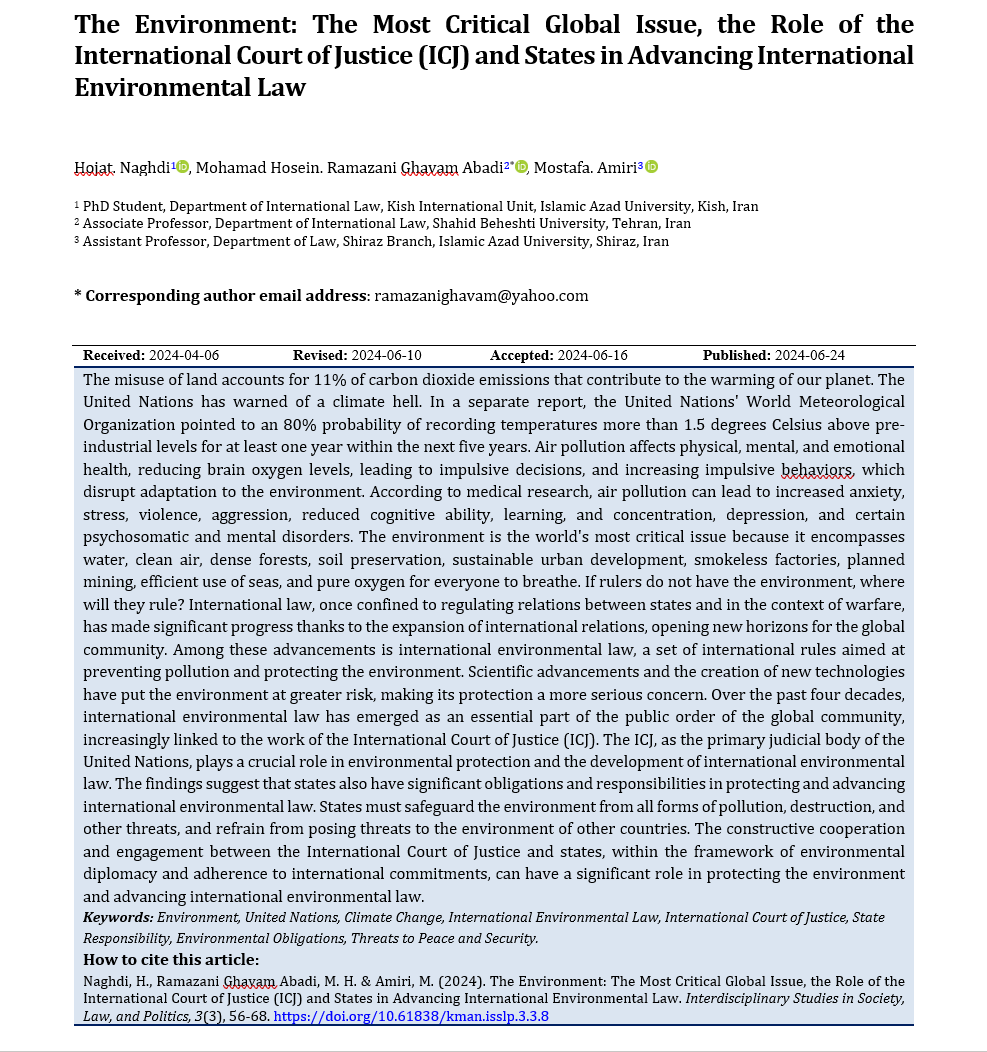The Environment: The Most Critical Global Issue, the Role of the International Court of Justice (ICJ) and States in Advancing International Environmental Law
Keywords:
Environment, United Nations, Climate Change, International Environmental Law, International Court of Justice, State Responsibility, Environmental Obligations, Threats to Peace and SecurityAbstract
The misuse of land accounts for 11% of carbon dioxide emissions that contribute to the warming of our planet. The United Nations has warned of a climate hell. In a separate report, the United Nations' World Meteorological Organization pointed to an 80% probability of recording temperatures more than 1.5 degrees Celsius above pre-industrial levels for at least one year within the next five years. Air pollution affects physical, mental, and emotional health, reducing brain oxygen levels, leading to impulsive decisions, and increasing impulsive behaviors, which disrupt adaptation to the environment. According to medical research, air pollution can lead to increased anxiety, stress, violence, aggression, reduced cognitive ability, learning, and concentration, depression, and certain psychosomatic and mental disorders. The environment is the world's most critical issue because it encompasses water, clean air, dense forests, soil preservation, sustainable urban development, smokeless factories, planned mining, efficient use of seas, and pure oxygen for everyone to breathe. If rulers do not have the environment, where will they rule? International law, once confined to regulating relations between states and in the context of warfare, has made significant progress thanks to the expansion of international relations, opening new horizons for the global community. Among these advancements is international environmental law, a set of international rules aimed at preventing pollution and protecting the environment. Scientific advancements and the creation of new technologies have put the environment at greater risk, making its protection a more serious concern. Over the past four decades, international environmental law has emerged as an essential part of the public order of the global community, increasingly linked to the work of the International Court of Justice (ICJ). The ICJ, as the primary judicial body of the United Nations, plays a crucial role in environmental protection and the development of international environmental law. The findings suggest that states also have significant obligations and responsibilities in protecting and advancing international environmental law. States must safeguard the environment from all forms of pollution, destruction, and other threats, and refrain from posing threats to the environment of other countries. The constructive cooperation and engagement between the International Court of Justice and states, within the framework of environmental diplomacy and adherence to international commitments, can have a significant role in protecting the environment and advancing international environmental law.
Downloads

Downloads
Additional Files
Published
Submitted
Revised
Accepted
Issue
Section
License
Copyright (c) 2024 Interdisciplinary Studies in Society, Law, and Politics

This work is licensed under a Creative Commons Attribution-NonCommercial 4.0 International License.





